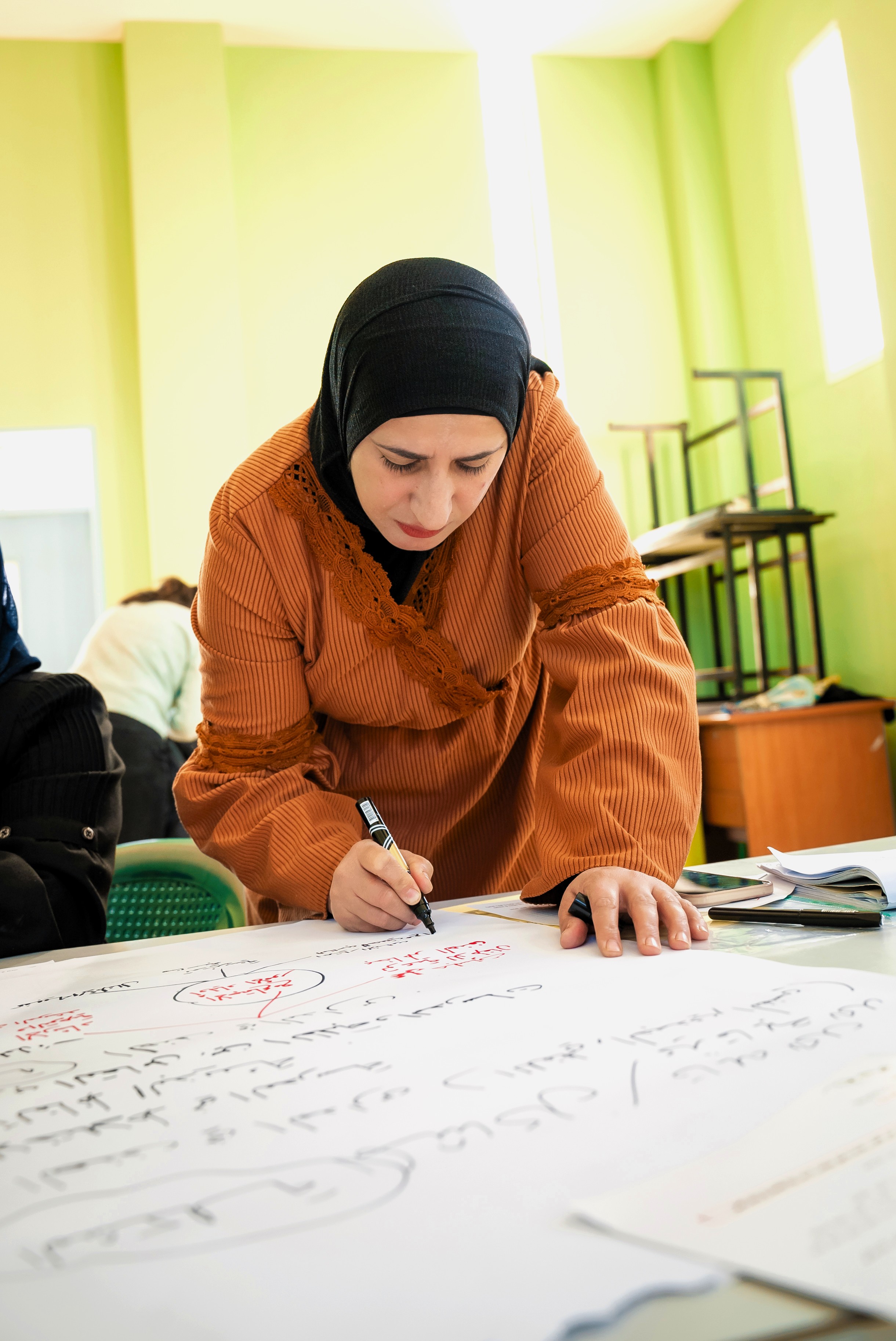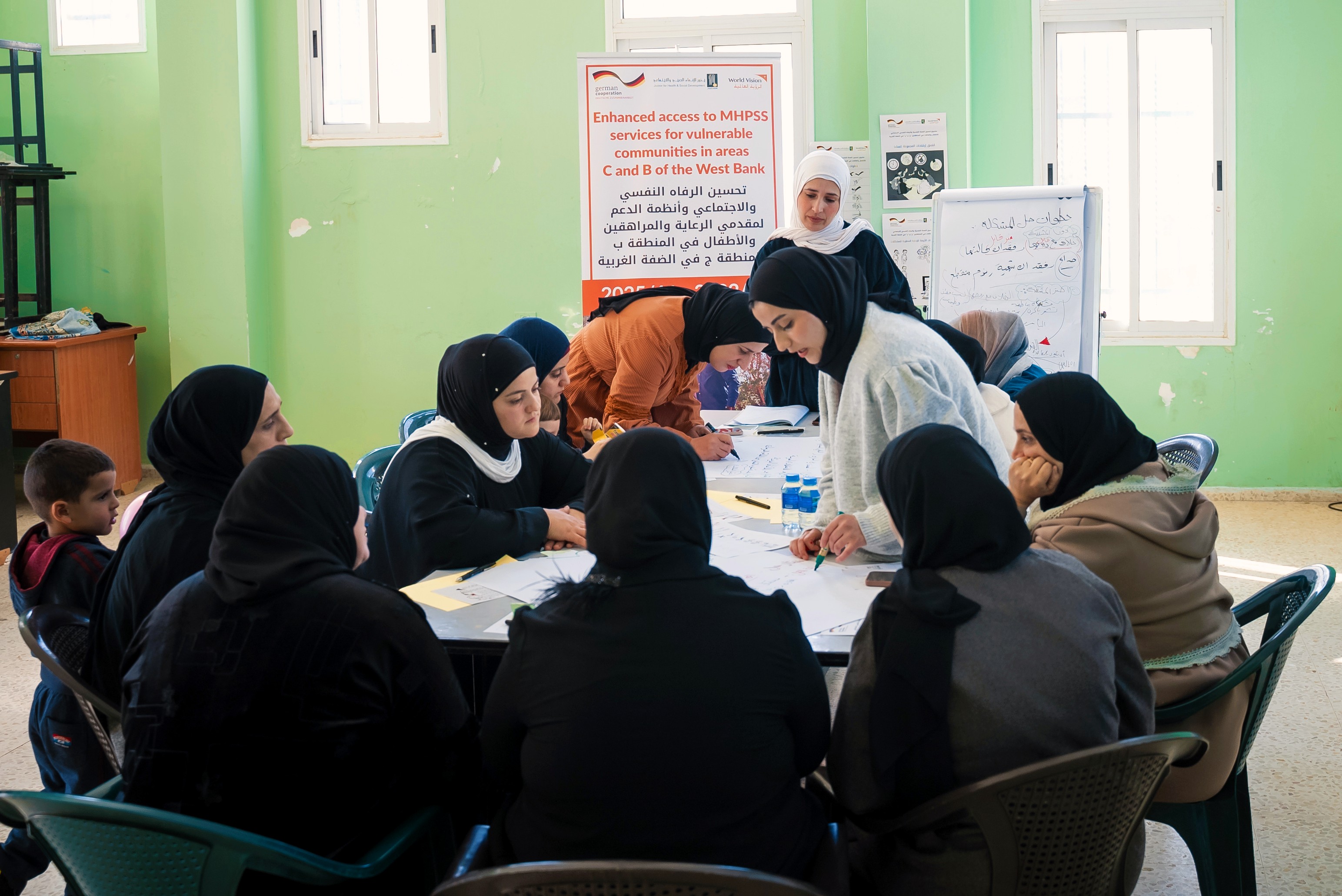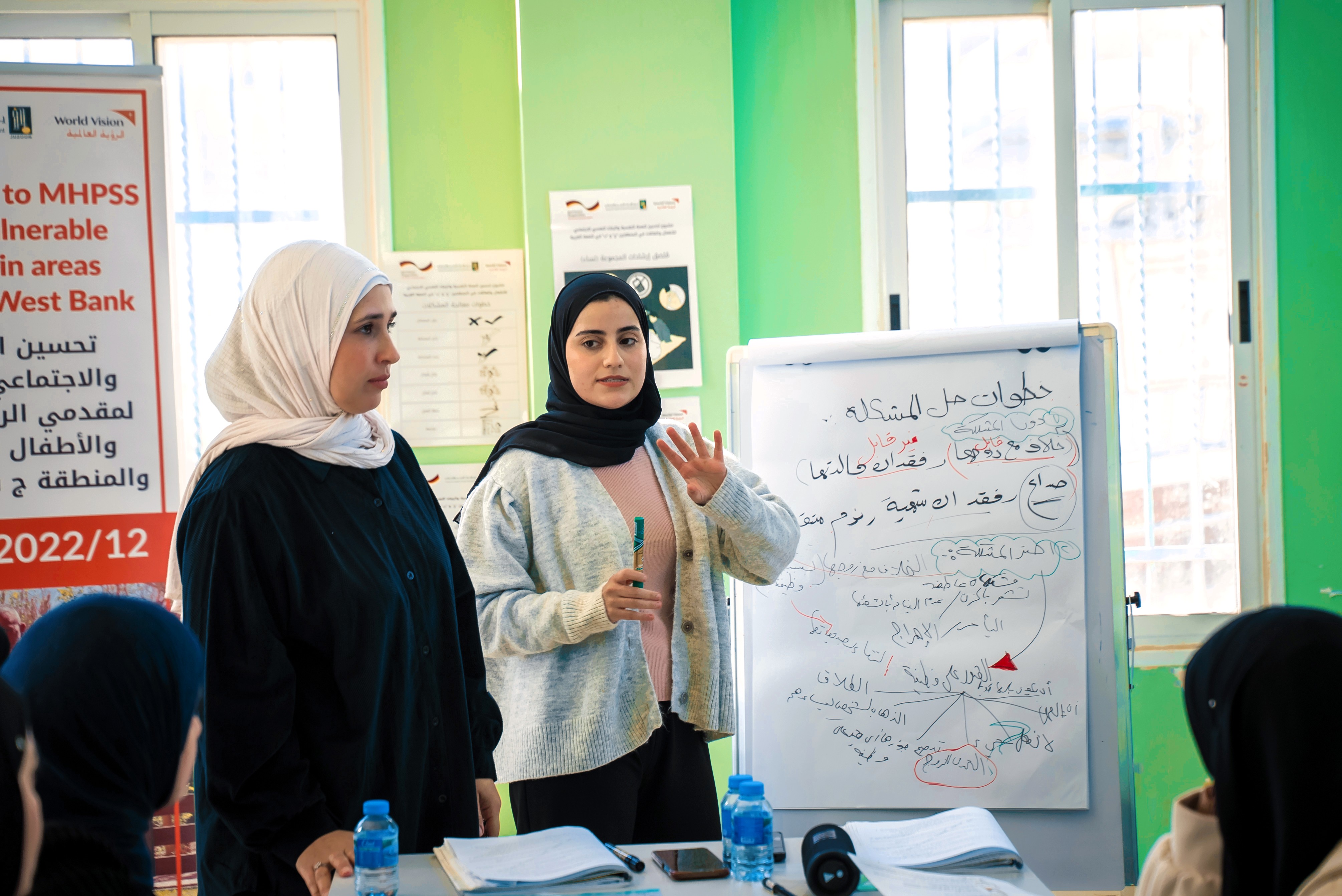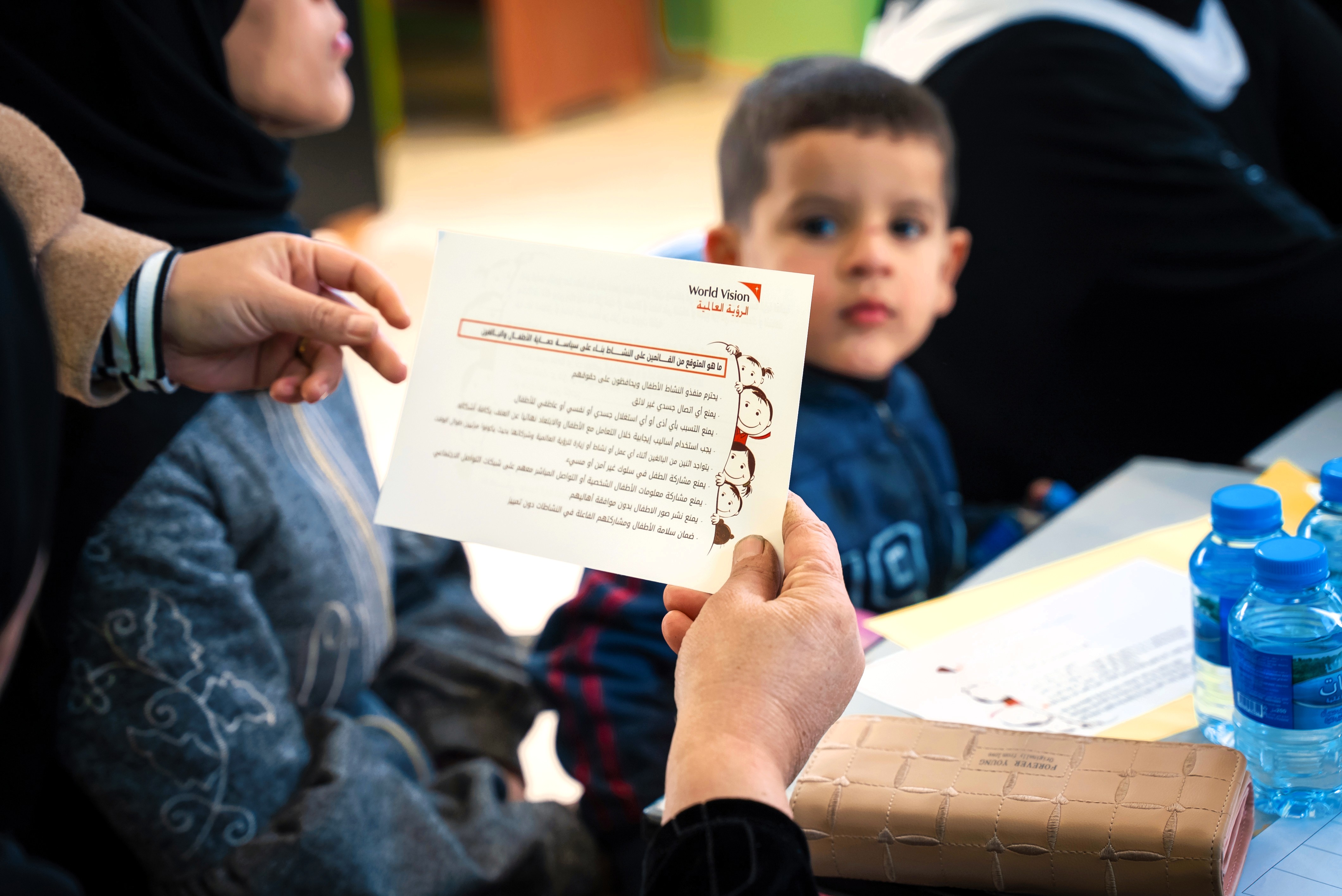Mental Health Support through Women Empowerment in the West Bank

Over the past 18 months, the West Bank has faced a worsening humanitarian crisis. Escalating violence, severe movement restrictions, and a deepening economic downturn have left families struggling to cope. For women in vulnerable communities, daily life is marked by constant worry—how to put food on the table, how to keep their children safe on the way home from school, and how to carry on amidst the uncertainty. The emotional and psychological toll has been profound.

In response, World Vision has expanded its mental health support through the “Enhanced Access to Mental Health Psychosocial Support (MHPSS) Services for Vulnerable Communities” project, funded by the German Federal Ministry for Economic Cooperation and Development (BMZ). At the heart of this initiative is Group Problem Management Plus (GPM+), a community-based intervention designed to equip women with practical tools to manage stress, solve everyday problems, and regain a sense of control.

Implemented in partnership with Juzoor for Health & Social Development, the GPM+ sessions offer women a safe and supportive space to speak openly, connect with others, and build resilience. “Some women have been left to suffer in silence,” said Afnan, one of the facilitators. “What they really need is a space where they can be heard, supported, and never judged.”
The sessions begin with foundational techniques—such as breathing exercises and stress management strategies—that help participants calm their minds before addressing deeper challenges. “At first, there wasn’t much interest,” Afnan admitted. “Many didn’t see how these exercises would help with real problems. But later, one of the women told me she had taught the breathing technique to her neighbor. That’s when I knew it was making a real difference.”
More than just temporary relief, these sessions aim to foster lasting transformation. By helping women trust themselves and support each other, GPM+ is sparking a shift in how problems are approached—individually and collectively. Fatima, 27, attended for the first time and shared, “I never thought I could solve problems on my own. But with the group’s support, I started to believe—we can think things through and find real solutions.”

Iman, 30, described the emotional release the sessions provided: “One of the most important things I learned is how vital it is for women to express themselves. It’s like breaking a cycle of stillness. Once we start talking, the energy comes back, and solutions begin to appear.” Afnan has witnessed these transformations firsthand. “It was amazing to see the shift. The women started identifying their own solutions—and acting on them. It was powerful to watch.”
Rooted in scientific evidence and global best practices, the approach is delivering measurable results. Since its launch, the program has led to a 60% reduction in psychological distress among participants, with 34% of caregivers reporting stronger problem-solving skills. These outcomes highlight the critical role of community-based mental health support. To date, 1,530 adults across 34 villages in the West Bank have participated in GPM+ sessions, with positive ripple effects reaching far beyond the programme itself. “This approach works,” Afnan emphasized. “It truly helps—and there are so many people in our community who need this kind of support.”
Beyond this project, since October 2023, World Vision has provided mental health and psychosocial support to 52,000 people while 340 teachers, youth club facilitators and health workers were trained to provide mental health and psychosocial support services and referrals.
